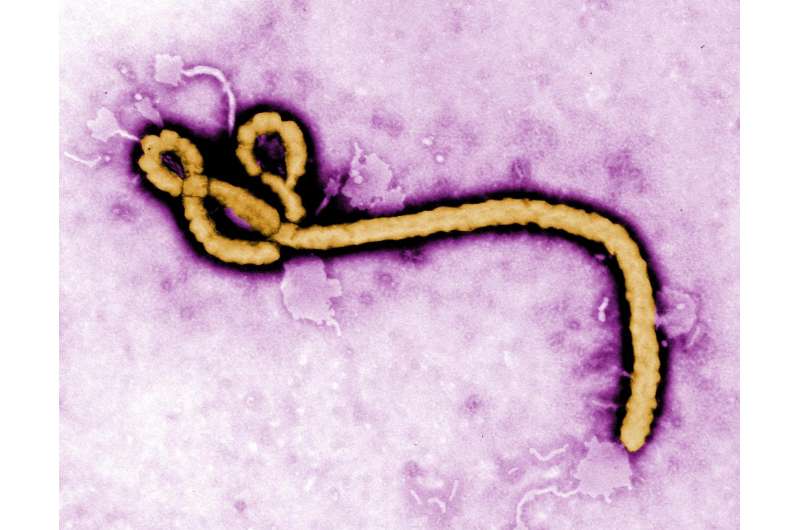Ebola: Lives to be saved with new management approach

Ebola outbreaks are set to be managed quickly and efficiently - saving lives - with a new approach developed by an international team of researchers, including the University of Warwick, which helps to streamline outbreak decision-making.
Dr Michael Tildesley from the School of Life Sciences - with researchers from Penn State University in the USA - have discovered that educating people in areas affected by Ebola about how the disease spreads through communities is the most effective strategy for halting an epidemic.
During the 2014 Ebola outbreak, numerous different intervention models were created with the aim of finding the best strategy to stop the spread of the disease.
The researchers re-assessed thirty-seven of these models and simulated many different outbreak scenarios using varying methods - including increased hospitalisation and community education about disease transmission - to identify the most consistent approach to tackling Ebola infections.
Of all the models that the research team evaluated, the majority consistently ranked two commonly proposed management strategies as the most effective: reducing transmission rates at funerals and reducing transmission rates in the community.
For example, by ensuring safe burials, reducing risky behaviour, providing household sanitation kits, encouraging sick individuals to remain at home, and increased community awareness.
Strategies which focused on reducing transmission at hospitals and increasing hospitalisation rates, however, were not well ranked.
At the start of the 2014 outbreak, there was confusion caused by lots of different predictions about how many cases there would be. But these differences may distract from the ultimate goal of limiting the outbreak.
This new approach identifies consistent patterns in projections and means that future outbreaks can be efficiently managed by policy-makers, and research efforts prioritised - to save more lives.
The 2014 Ebola epidemic resulted in 28,646 cases, and claimed 11,323 lives by March 2016. If a future Ebola epidemic had exactly the same numbers, using this approach could create a reduction of 3266 cases, and save 1633 lives.
Dr Tildesley commented: "When a disease outbreak happens, there is a lot of uncertainty regarding how the epidemic is going to spread in the future. However, we can't afford to wait before implementing control - we need to make rapid decisions in the face of this uncertainty.
"Our approach allows us to make best use of the information that is available and to manage an outbreak in the most effective way, thus saving lives."
Shou-Li Li, postdoctoral researcher at Penn State and first author of the study, commented:
"Our approach synthesizes data from many models and provides two important pieces of information. It identifies the best course of action, given what we know now, and highlights the gaps in our knowledge that actually matter to the selection of interventions strategies.
"It could guide the management of outbreaks where rapid decision-making is critical, including diseases we know a lot about, like influenza, those that we don't know a lot about, like Zika, and those that we don't even know exist.
"The difference between the projections and the actual size of the 2014 Ebola outbreak caused intense public debate. But rather than focusing on how big the outbreak would be, our study focused on what to do to keep it small?"
More information: Shou-Li Li el al., "Essential information: Uncertainty and optimal control of Ebola outbreaks," PNAS (2017). www.pnas.org/cgi/doi/10.1073/pnas.1617482114

















